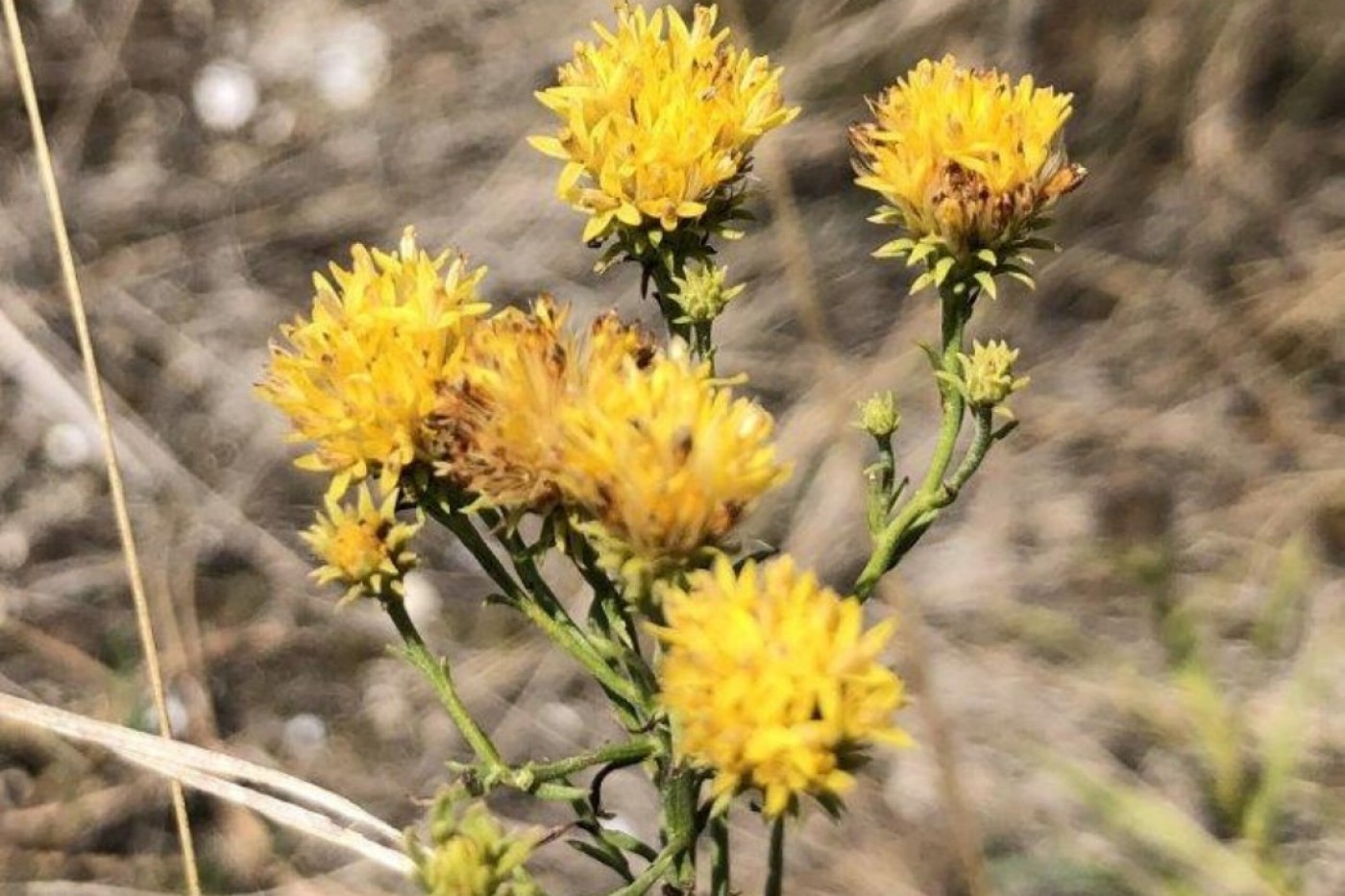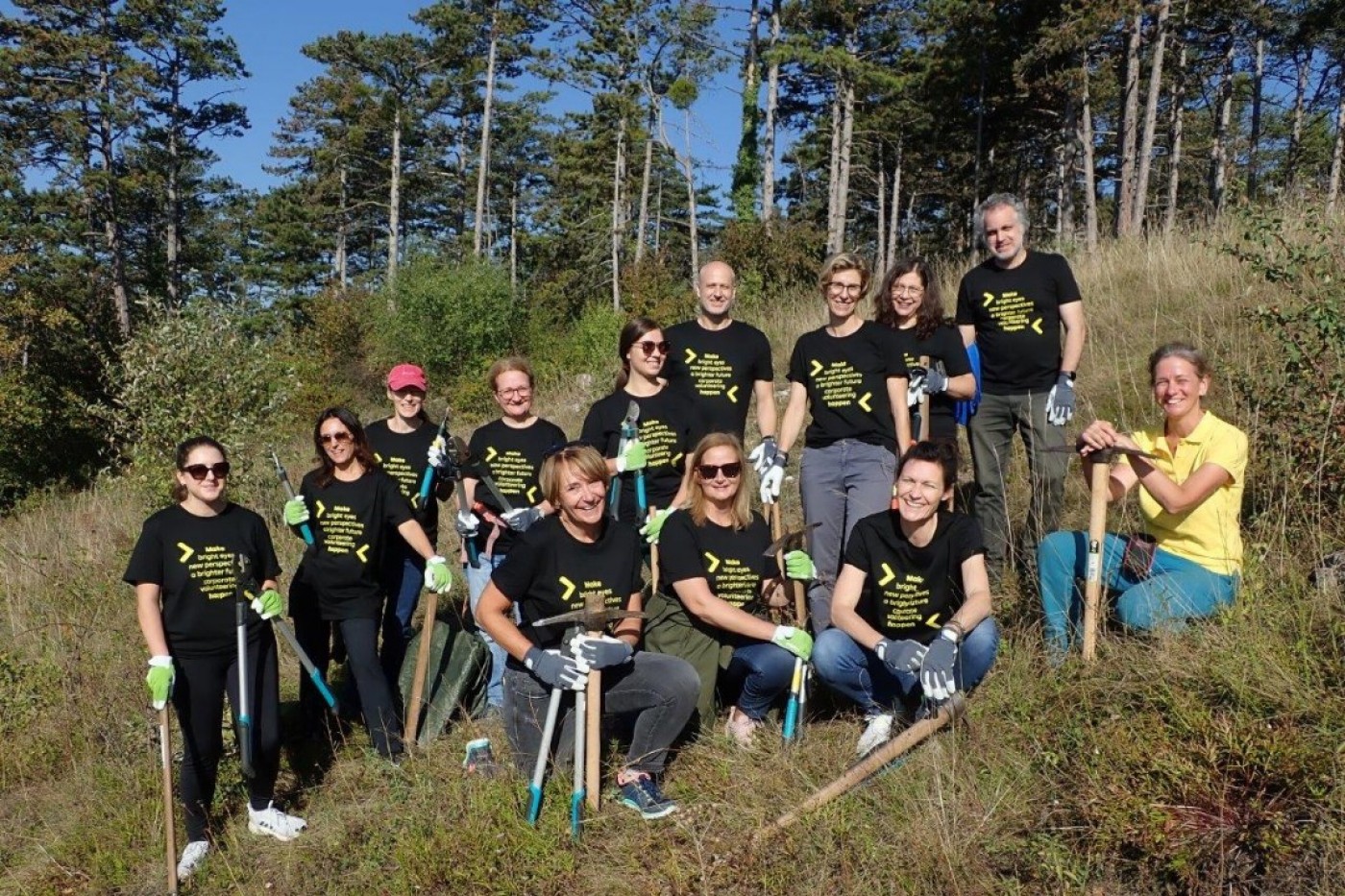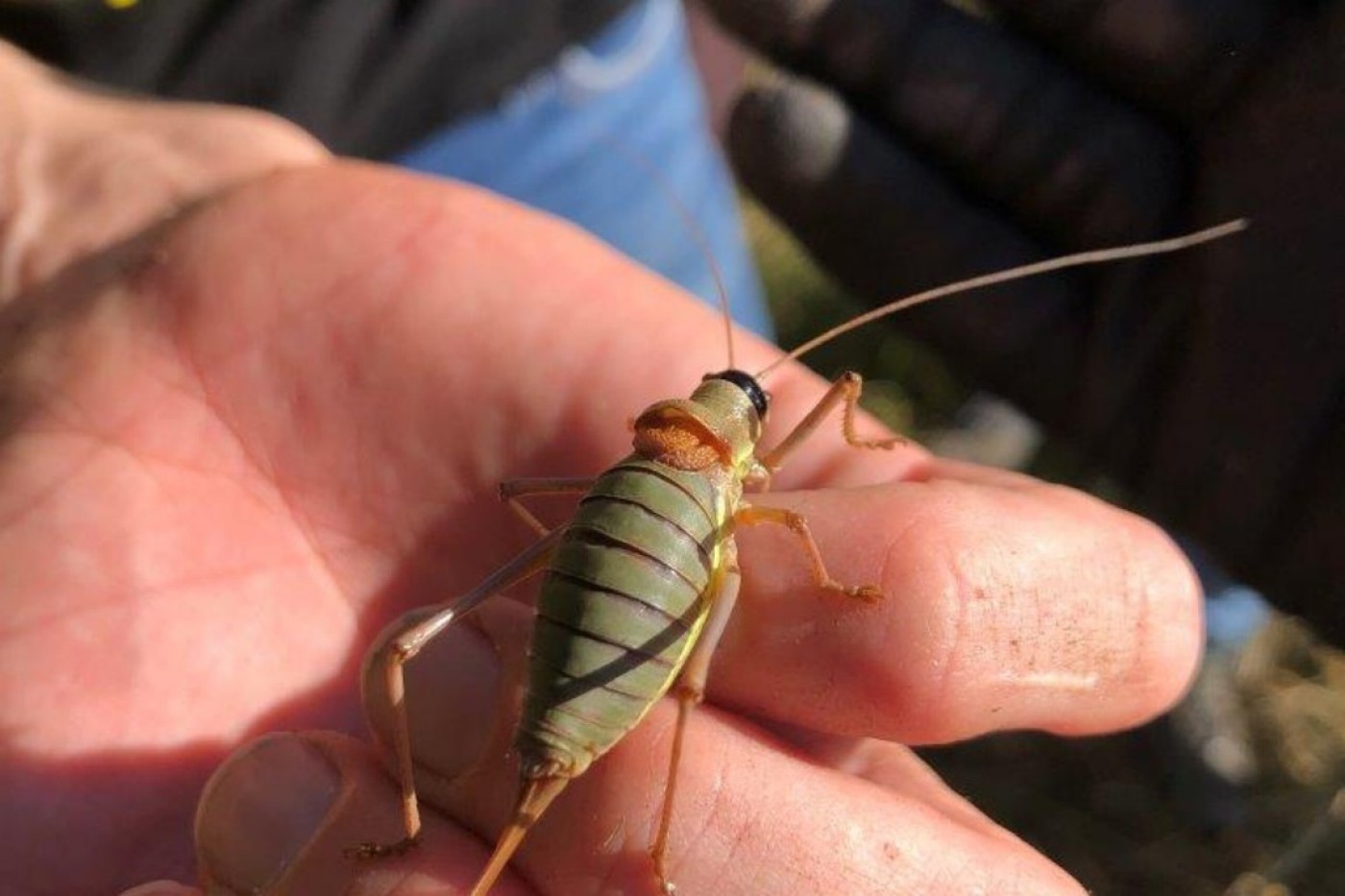
Biosphere park instead of office: Bankers with pickaxes and loppers
The issue of dwindling biodiversity is no longer a secret. Yet, the urgency of the matter is often not clear within companies. It’s high time to deal with biodiversity as our central basis for life and economy. After all, all economic sectors depend on it to some extent.
RBI recently tackled this topic practically as part of their corporate volunteering program, actively contributing to the preservation and protection of biodiversity and ecosystems in a pilot project.
In the last week of September, twelve corporate volunteers from RBI gathered to uproot shrubs and small trees on a dry grassland area in Bad Vöslau to protect nature. Irene Drozdowski and Felix Hohn from the Landscape Conservation Association Thermenlinie - Wienerwald - Wiener Becken convincingly explained to the employees why this is part of maintaining the dry grassland in the UNESCO Biosphere Park Wienerwald. As long as larger plants, which were kept in check by grazing livestock a few decades ago, can be pushed back, hundreds of plant species and thousands of animal species thrive on this dry soil. The fact that these species are rare and often highly endangered makes their habitat, also called heath or steppe, all the more valuable.
Irene Drozdowski’s explanations concerning the significance of dry grassland as the oldest and most species-rich habitat in Europe motivated the group. So, the volunteer helpers got to work with pickaxes and loppers, uprooting and cutting plants such as privet, barberry, blood-red dogwood, and oak shoots. The colleagues also learned that this clearing is technically called “swiddening” and would not be feasible with machines, as animals and plants would be damaged too much. The contrast of their activity to office and home office everyday life became particularly apparent when animals like the rare steppe saddle bush-cricket with its saddle-shaped neck shield and the praying mantis with its conspicuously large, thorned catching legs were spotted.
At the end, Sabine Abfalter, CFO and volunteer, expressed what many colleagues thought: “I found it impressive how much unwanted wood an eager team can remove in such a short time. But the theory behind the action was also valuable: I was not aware of the high value of dry grassland for our biodiversity. So I learned a lot, sweated a lot, and had fun!”
Dry grassland as a carbon sink The volunteers’ efforts contributed not only to the preservation of biological diversity but also to climate protection, as large amounts of carbon are stored in the dense root system of the grasses. At the same time, the plants of the dry grassland are well adapted to heat and drought, making them well prepared for climate change. All these positive aspects convinced Christine Würfel, Head of Group ESG & Sustainability Management, to support the Landscape Conservation Association as part of the current RBI Corporate Volunteering Program: “It is confirmed that diverse, intact ecosystems contribute to mitigating the climate crisis. In addition to the existing social corporate volunteering projects of RBI, we want to support the numerous measures that RBI is taking to reduce CO2 emissions in a practical way once again.” After about three hours of work, the participants agreed that their support was strenuous, but very fulfilling and meaningful. The non-profit Landscape Conservation Association has been committed to the long-term preservation of biological diversity and climate protection in the region in and around Vienna since 2017. With a regional network of people and organizations, it advocates for valuable natural areas.
More information about RBI’s commitment and the Landscape Conservation Association can be found here:
RBI’s care mission in Bad Vöslau | Reports 2023 (landschaftspflegeverein.at)



Related News
Be the first
Subscribe to Raiffeisen Insights. Get an e-mail with
the latest trends in the world of economics and business.